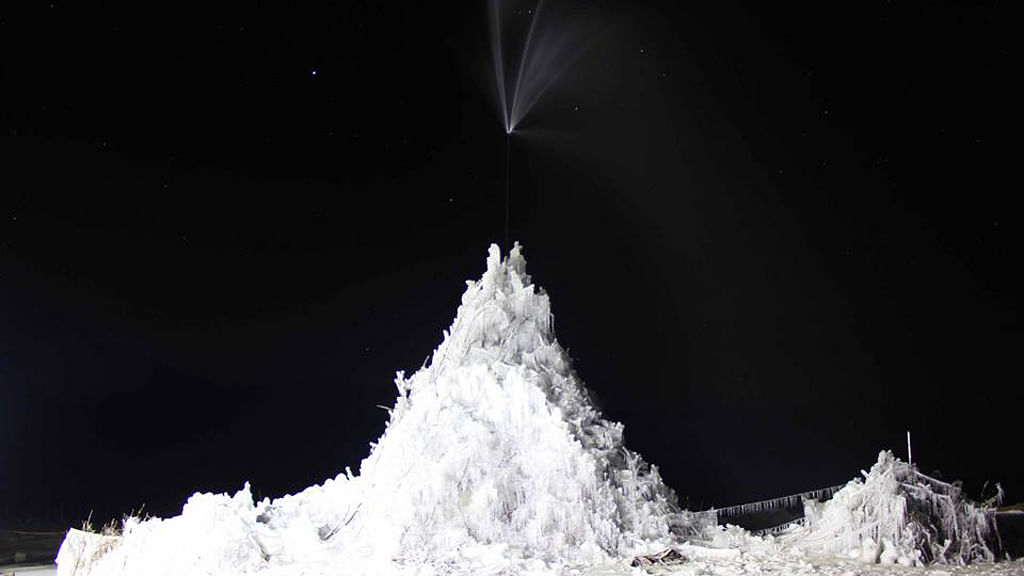In Pics: Ladakh’s Beautiful Ice Stupas Ensure Water for All
The artificial glaciers of Ladakh.

The mighty Indus flows through Ladakh, but ironically there isn’t sufficient water for the villagers in the trans-Himalayan mountain desert.
The problem arises during the months of April-May when the villagers compete for water from tiny streams for their newly-planted crops. The glaciers don’t melt by then and water shortage is acute. Contrarily, in the months of June when the Glaciers do start to melt, they sometimes lead to Flash Floods. During winter months, the water in the streams flows into the Indus, without being of much use to the locals.
To make optimum use of the water available to the villages in and around Leh district, His Holiness Drikung Skyabgon Chetsang Rinpochey, in partnership with SECMOL Alternative School, started a project called The Ice Stupa Project, the primary aim of the project is to store water in Stupa like structures in order to help combat the water shortage during summers. Have a look!
How is the Stupa Built?
The project aims at reducing wastage of water in the winter months, by using streams to build Ice Stupas, which eventually melt in the summer months (before the melting of the glaciers) and can be used by villages short of water.
The photos below show the process of how these Stupas are built.
First, a framework is laid out.
Framework becomes formwork, when the sheets are draped around the structure.
A sprinkler pours water, all over the structure, which eventually freezes and the process of building the stupa begins.
And after weeks, this is the result.
(At The Quint, we are answerable only to our audience. Play an active role in shaping our journalism by becoming a member. Because the truth is worth it.)